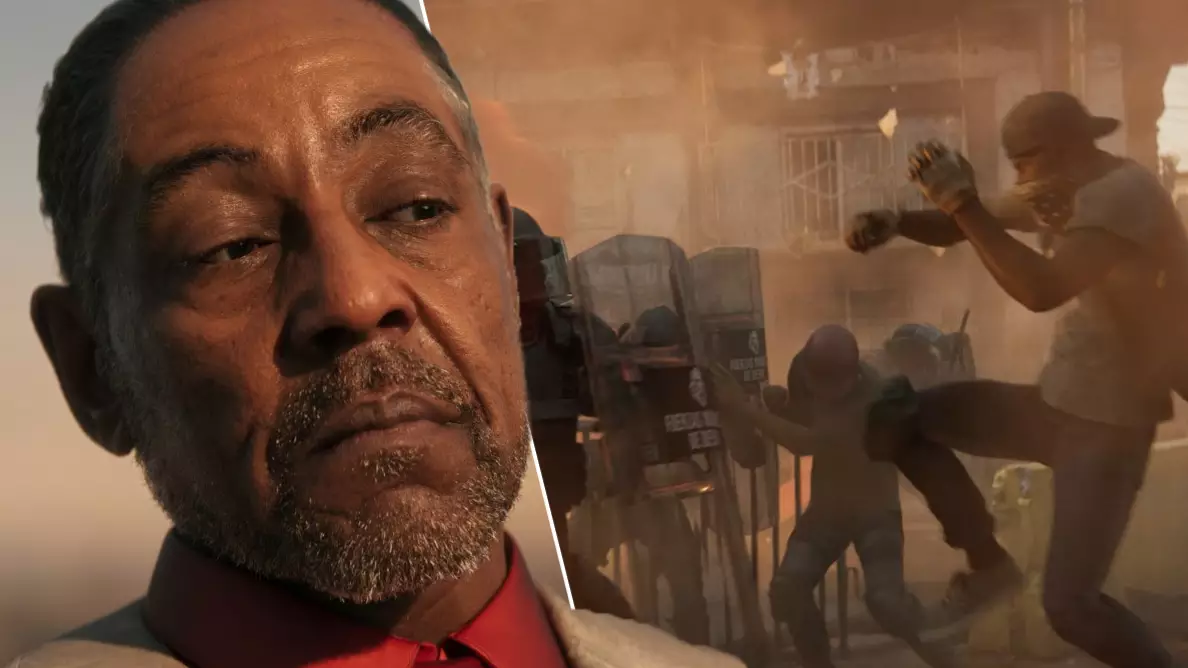
After a Ubisoft developer told TheGamer that they don't want to make a political statement with the setting and story of the forthcoming Far Cry 6, the publisher has issued a statement that, actually, the game is political. Because of course it is. Everything is.
The official Ubisoft statement was most likely - almost certainly - prepared before narrative director Navid Khavari told TheGamer that Far Cry 6's setting of the very-Cuba-like Yara was not a "political statement". Nevertheless, its release after Khavari completed a round of interviews - he spoke with us, too, and previously in July 2020, around the game's reveal - will have some thinking this new statement is a kind of damage control. Again though, from what I know, this was something Ubisoft always wanted to put out there - to lean into the political elements of Far Cry 6, rather than repeat mistakes of their past and try to dismiss them.
Check out our gameplay footage of Far Cry 6 in action, below...
With a history of saying that their highly political games aren't political at all, it's somewhat refreshing for Ubisoft to come out and say, y'know, yes, this is. You can understand their hesitancy in the past given how a certain section of the gaming audience throws its toys out of the pram at the merest mention of the P-word in relation to interactive entertainment, but you have to be a pretty ignorant individual to not realise that politics shape the world, and the world informs art and entertainment. And also, when your story is set on a Cuba-based fictional island in the middle of a revolution, come on, now.
Advert
The official Ubisoft statement is seemingly penned by Khavari, and begins, simply: "Our story is political."
"A story about a modern revolution must be," the narrative director continues. "There are hard, relevant discussions in Far Cry 6 about the conditions that lead to the rise of fascism in a nation, the costs of imperialism, forced labor, the need for free-and-fair elections, LGBTQ+ rights, and more within the context of Yara, a fictional island in the Caribbean. My goal was to empower our team to be fearless in the story we were telling, and we worked incredibly hard to do this over the last five years. We also tried to be very careful about how we approached our inspirations, which include Cuba, but also other countries around the world that have experienced political revolutions in their histories."
While I'm sure that a statement like this was planned, in some respect, prior to TheGamer article running, one part of Khavari's words appears to refer to his previous, poorly-worded remark. "I am from a family that has endured the consequences of revolution. I have debated revolution over the dinner table my entire life. I can only speak for myself, but it is a complex subject that should never be boiled down to one quote."
If you wish to read the whole statement, you can find it here. But suffice to say that politics is a big part of the events of Far Cry 6, and in turn its action, and the decisions you make as the player. It is beyond naive to go through your life thinking that entertainment and politics shouldn't mix - as it's far, far too late for that.
Advert
In related Far Cry 6 coverage on GAMINGbible, its star Giancarlo Esposito brought his own props to the role of Antón Castillo, and yes, real-world guerrilla fighters were consulted for the game. Quite a political move, that. Far Cry 6 releases on October 7 for consoles (except Switch), streaming services and PC, and chances are we'll get some more information on it during the E3-window Ubisoft Forward event on June 12.
Featured Image Credit: Ubisoft